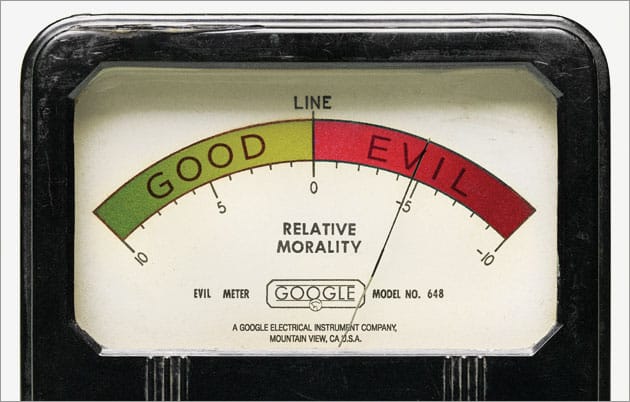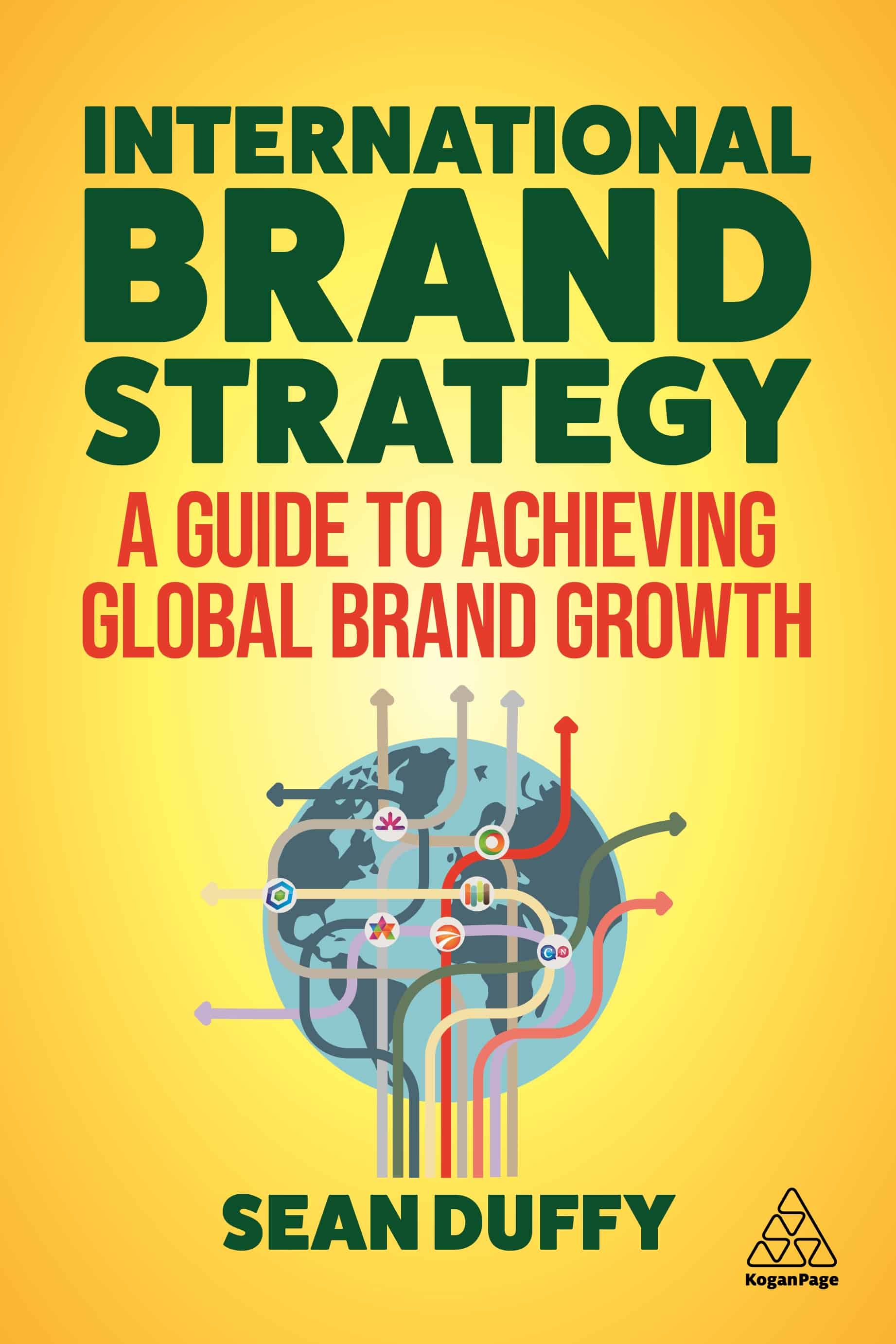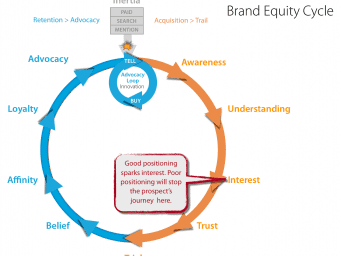The Google Delusion: Don’t be evil
Part 3 of 4 “Don’t be evil” was coined by Google employees Paul Buchheit and Amit Patel in 2000 and has been ki...
6 Jul 2012 4974 ViewsPart 3 of 4
“Don’t be evil” was coined by Google employees Paul Buchheit and Amit Patel in 2000 and has been kicking around as an unofficial motto ever since. It was included in the prospectus document of Google’s 2004 IPO and is defined in the company’s Code of Conduct as being “about providing our users unbiased access to information, focusing on their needs and giving them the best products and services that we can. But it’s also about doing the right thing more generally – following the law, acting honorably and treating each other with respect.”
Buchheit said that the slogan was “a bit of a jab at a lot of the other companies, especially our competitors, who at the time, in our opinion, were kind of exploiting the users to some extent.” I suspect the activities of those competitors in 2000 pale in comparison to Google’s exploits today.
For instance, although Google claims that no humans are involved, they do admit that a machine reads every email sent and received through Gmail to sift out keywords and gain insights into the sender for advertising purposes. Same with your photos. (see: Criticism of Google). In fact everything you do on a Google platform is scrutinized by a faceless algorithm somewhere that extracts data, makes assumptions and adds them to your profile. That’s creepy, especially the assumptions part.
These assumptions are the crowning achievement of Google Now a Siri-on-steroids personal assistant app. In her article ‘Google Now’s’ Terrifying, Spine-Tingling, Bone-Chilling Insights Into Its Users, Forbes writer, Kashmir Hill, provides an excellent overview of just how creepy digital profiling can be. The short answer: very creepy. In his Gizmodo article, Sam Biddle described Google Now as “wince-inducing”, while admiring the technical achievements behind it. He notes that Google simply assumes people are comfortable being monitored round the clock. “To Google, it’s a non-grievance. Who would ever care? Why would you turn down a computer that knows the details of your personal life, and can predict the next one?“
And that’s just the point: It’s not just your computer who knows. It’s also a small group of seemingly out-of-touch, definitely financially-motivated men and women hell-bent on finding new ways to collect and sell assumptions they make about you for profit. At the end of the day, they are the ones eavesdropping on your life, not your computer. That ratchets creepy up to a whole new level. Jenna Wortham at The New York Times summed it up best, “It’s easy to see how this kind of service could be helpful. It’s also really easy to see how it could be creepy. What’s harder, however, is to see the line between the two, and to know where (and when) Google might cross it.“
Google’s product portfolio may seem completely unfocused until you look at it in terms of their data addiction. Then a glaring red thread appears. Since every digital app and device is capable of harvesting user data to feed that addiction, it’s no surprise that the company is trying to be all things digital. Google’s unarticulated quest to extract every bit of data from web users by whatever means present themselves is something that is likely to run against the grain of public sentiment. That’s the tinder. What will be the spark?
Google is a media darling today. This has helped deflect criticism that would have stuck to lesser brands. But as much as the media love to create its darlings, it relishes tearing them down even more. It may take markets a while to catch on. But when there is no more news value left in idolizing Google then there will plenty to be found in demonizing it. And the public is more than happy to oblige especially if they feel duped.
Today the meter of public perception is comfortably pegged in the green zone for the Google brand. The only thing holding that needle in place is the fact that most people:
- are relatively oblivious to the data collection activities of Google through its various services
- believe the company’s main focus is search as opposed to acquiring and selling their data
- have yet to pick up on the pattern of Google’s increased invasiveness into their privacy
- can’t envision a search engine or maps working better than Google does today
- haven’t yet noticed that Google no longer strives to innovate but to imitate
- believe the search results Google delivers are completely unbiased and not rigged to elevate its own products or squelch competitors
- believe Google’s only competitors are Bing and Yahoo as opposed to most every company on the web
Are these perception bubbles waiting to burst? If they do, Google will need every ounce of the public’s goodwill it can muster to avert an exodus from its platforms. That will take aggressive brand management now, not crisis management when we hear the “pop.”
You can already see the media warming up for the Google roast as the brand accumulates a growing list of powerful enemies in both the private and government sectors. Just search for “Google+evil” to get a flavor of current sentiments.
In his Wired article Google is Evil, Rory O’Connor likens Google’s situation to fighting a defensive war on several fronts concluding that “Despite its incredible reach, power and profit, it’s a war that Google — the 21st century equivalent of the still-powerful but increasingly irrelevant Microsoft — may well be destined to lose, along with the trust its users have long extended to one of the world’s most powerful brands.”
Is Google being evil? Owen Thomas provides an eloquent answer in his Business Insider rant Let’s Just Admit That Google Is Evil Now, Okay?. I don’t see Google as evil so much as a brand that is over confident, out of touch and doesn’t really care what I or its other customers think — despite PR antics to the contrary. Those qualities are not evil. But together they are a potent cocktail of brand intoxicants that could easily impair the judgement of any company leading it astray or at least fueling a perception that they have defected to the dark side.
From the perspective of the causal observer, the brand’s actions seems significantly out of sync with its mission statement, code of ethics and other brand-speak. In short: A brand that says one thing and does another. As John Gruber (a.k.a. Daring Fireball) noted in his comments to Farhad Manjoo’s post: “It’s not that Google is evil. It’s that they’re hypocrites. That’s the difference between Google and its competitors.“
Google may not, in fact, be evil at all (at least no more evil than any other company collecting your data). But that’s the impression created by the headlines it’s making. I don’t see Google doing anything of substance to address this perception. To the contrary, they seem to move blithely along unaware that public perception could even matter. As if they are in a special realm of business where the laws of brand physics no longer apply. Which begs the question: Is Google too big to fail?
In my next, and final post in this series, The Google Delusion: Too big to fail? (part 4 of 4), I’ll recap some brand management lessons that Google offers us and outline several specific suggestions on ways that Google’s brand management could better serve Google, its shareholders and the public.
Like this post? You'll find more marketing insights in my new book: International Brand Strategy: A guide to achieving global brand growth, now available from booksellers globally. Order your copy here.









